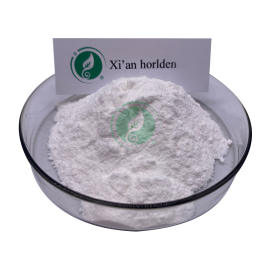-
Categories
-
Pharmaceutical Intermediates
-
Active Pharmaceutical Ingredients
-
Food Additives
- Industrial Coatings
- Agrochemicals
- Dyes and Pigments
- Surfactant
- Flavors and Fragrances
- Chemical Reagents
- Catalyst and Auxiliary
- Natural Products
- Inorganic Chemistry
-
Organic Chemistry
-
Biochemical Engineering
- Analytical Chemistry
- Cosmetic Ingredient
-
Pharmaceutical Intermediates
Promotion
ECHEMI Mall
Wholesale
Weekly Price
Exhibition
News
-
Trade Service
Editor in charge: Food Science
Highlights
- By optimizing the steps of reduction, alkylation, digestion and purification, a rapid sample preparation method for identifying peptide markers has been established
- During rapid sample preparation, most proteins that provide species-specific peptides can be detected
- Established a fast LC-MS/MS method for detecting 35 species-specific peptides in 7 animals
As many food frauds and bad behaviors have occurred worldwide in the past few years, the authenticity of food has gradually become the focus of food safety and quality
For highly processed meat products containing multiple mammalian and poultry species, the use of mass spectrometry (MS) to detect specific peptides is a powerful, high-throughput meat certification method
The detection strategy of peptide markers for species identification is based on bottom-up proteomics, which is characterized by digestion of specific peptide bonds in proteins
In this study, Mingyue Zhang, Shouwei Wang, etc.
Results and DiscussionRapid sample preparation (RSP) method development and optimization
The protein concentration in the 7 kinds of raw meat shows that the protein extraction of this method is sufficient
Without reduction and alkylation, the protein extracted from meat samples can be directly digested by trypsin
After confirming the steps of rapid sample preparation, the amount of supernatant and trypsin and the digestion time were evaluated to minimize time and reagent consumption
In short, this research has developed a convenient and time-saving sample preparation method, which can be used for peptide detection in just 2.
After verifying the ability of the RSP method to generate enough peptides, the protein data of seven species of raw meat samples obtained by the traditional sample preparation method and the RSP method were compared to study the quality of the protein obtained by the RSP method
As shown in Figure 2, the identified proteins of the seven animal species are distributed in three cases, namely the only discovery in the RSP method, the only discovery in the traditional method, and the discovery in both methods
RSP method to screen and verify the specific peptides of 7 species
After confirming the effectiveness of the RSP method, a rapid LC-MS/MS method involving the RSP method to detect peptides of specific species was established
Screening of species-specific peptides
Screen the peptides extracted from the QE analysis in the raw meat samples of 7 species, and select the species-specific peptides according to the following parameters: 1) Each species has a unique test result; 2) The length is 6-25 amino acid residues Between; 3) There are trypsin-specific cleavage sites at both ends, no cleavage is missed; 4) It is abundant in muscle
The MRM conversion ions of peptide markers are selected under the following conditions for accurate qualitative analysis, especially in complex meat products: each peptide contains at least 3 MRM conversions, and each MRM conversion has the same retention Time and high intensity, with signal-to-noise ratio at low concentrations
The MRM conversion of each peptide was checked in all meat samples of 7 species to ensure that the peptide markers identified in this study are unique to each species
China Meat Research Center, 100068 Beijing, China
Correspondence to: cmrc_wsw@126.
Abstract
The adulteration of meat products has been reported worldwide, and detection of specific peptides through mass spectrometry (MS) is a reliable method for meat species identification.
However, the practical application of this method is limited by complicated steps and long reaction time of the traditional sample preparation.
Therefore, this paper introduced a convenient and time-saving sample preparation by optimizing the steps of reduction, alkylation, digestion, and purification.
With the rapid sample preparation, 35 species-specific peptides for seven species (pig, cattle, sheep , deer, chicken, duck, and turkey) were screened using high-resolution MS, and a rapid LC-MS/MS method was established.
The method only takes 3 h from sample receipt to results.
The meat species of 20 processed meat products were detected,and three samples were found potentially adulterated.
The method is proved to have high sensitivity, specificity, practicability with respect to rapid identification of meat species in meat products.
Reference:
ZHANG MY, LI YY, ZHANG YY, et al.
Rapid LC-MS/MS method for the detection of seven animal species in meat products[J].
Food Chemistry, 2021, 371: 131075.
DOI:10.
1016/j.
foodchem.
2021.
131075.
This article is an English version of an article which is originally in the Chinese language on echemi.com and is provided for information purposes only.
This website makes no representation or warranty of any kind, either expressed or implied, as to the accuracy, completeness ownership or reliability of
the article or any translations thereof. If you have any concerns or complaints relating to the article, please send an email, providing a detailed
description of the concern or complaint, to service@echemi.com. A staff member will contact you within 5 working days. Once verified, infringing content
will be removed immediately.







